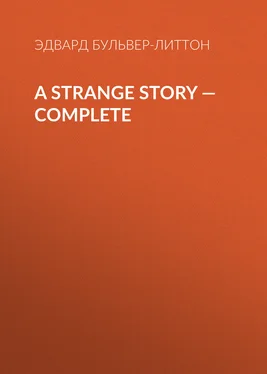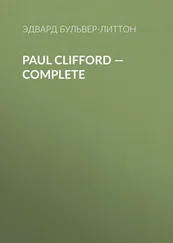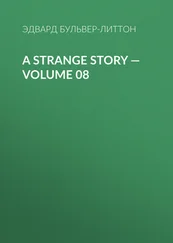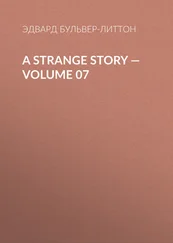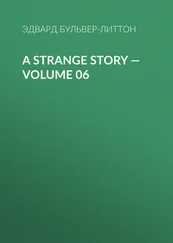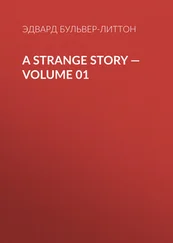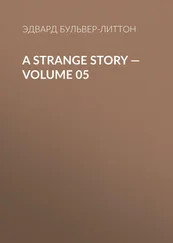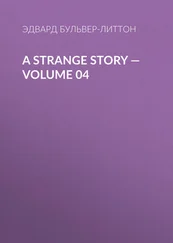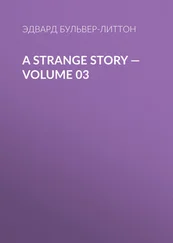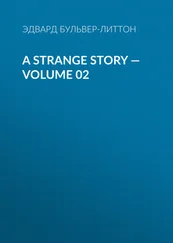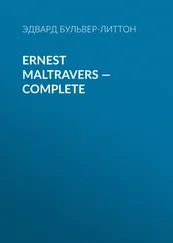Эдвард Бульвер-Литтон - A Strange Story — Complete
Здесь есть возможность читать онлайн «Эдвард Бульвер-Литтон - A Strange Story — Complete» — ознакомительный отрывок электронной книги совершенно бесплатно, а после прочтения отрывка купить полную версию. В некоторых случаях можно слушать аудио, скачать через торрент в формате fb2 и присутствует краткое содержание. Жанр: foreign_prose, literature_19, Европейская старинная литература, foreign_antique, на английском языке. Описание произведения, (предисловие) а так же отзывы посетителей доступны на портале библиотеки ЛибКат.
- Название:A Strange Story — Complete
- Автор:
- Жанр:
- Год:неизвестен
- ISBN:нет данных
- Рейтинг книги:3 / 5. Голосов: 1
-
Избранное:Добавить в избранное
- Отзывы:
-
Ваша оценка:
- 60
- 1
- 2
- 3
- 4
- 5
A Strange Story — Complete: краткое содержание, описание и аннотация
Предлагаем к чтению аннотацию, описание, краткое содержание или предисловие (зависит от того, что написал сам автор книги «A Strange Story — Complete»). Если вы не нашли необходимую информацию о книге — напишите в комментариях, мы постараемся отыскать её.
A Strange Story — Complete — читать онлайн ознакомительный отрывок
Ниже представлен текст книги, разбитый по страницам. Система сохранения места последней прочитанной страницы, позволяет с удобством читать онлайн бесплатно книгу «A Strange Story — Complete», без необходимости каждый раз заново искать на чём Вы остановились. Поставьте закладку, и сможете в любой момент перейти на страницу, на которой закончили чтение.
Интервал:
Закладка:
I had almost forgotten the dispute which had obtained for me so conspicuous a triumph, when one winter’s night I was roused from sleep by a summons to attend Dr Lloyd, who, attacked by a second stroke a few hours previously, had, on recovering sense, expressed a vehement desire to consult the rival by whom he had suffered so severely. I dressed myself in haste and hurried to his house.
A February night, sharp and bitter; an iron-gray frost below, a spectral melancholy moon above. I had to ascend the Abbey Hill by a steep, blind lane between high walls. I passed through stately gates, which stood wide open, into the garden ground that surrounded the old Abbots’ House. At the end of a short carriage-drive the dark and gloomy building cleared itself from leafless skeleton trees,—the moon resting keen and cold on its abrupt gables and lofty chimney-stacks. An old woman-servant received me at the door, and, without saying a word, led me through a long low hall, and up dreary oak stairs, to a broad landing, at which she paused for a moment, listening. Round and about hall, staircase, and landing were ranged the dead specimens of the savage world which it had been the pride of the naturalist’s life to collect. Close where I stood yawned the open jaws of the fell anaconda, its lower coils hidden, as they rested on the floor below, by the winding of the massive stairs. Against the dull wainscot walls were pendent cases stored with grotesque unfamiliar mummies, seen imperfectly by the moon that shot through the window-panes, and the candle in the old woman’s hand. And as now she turned towards me, nodding her signal to follow, and went on up the shadowy passage, rows of gigantic birds—ibis and vulture, and huge sea glaucus—glared at me in the false light of their hungry eyes.
So I entered the sick-room, and the first glance told me that my art was powerless there.
The children of the stricken widower were grouped round his bed, the eldest apparently about fifteen, the youngest four; one little girl—the only female child—was clinging to her father’s neck, her face pressed to his bosom, and in that room her sobs alone were loud.
As I passed the threshold, Dr. Lloyd lifted his face, which had been bent over the weeping child, and gazed on me with an aspect of strange glee, which I failed to interpret. Then as I stole towards him softly and slowly, he pressed his lips on the long fair tresses that streamed wild over his breast, motioned to a nurse who stood beside his pillow to take the child away, and in a voice clearer than I could have expected in one on whose brow lay the unmistakable hand of death, he bade the nurse and the children quit the room. All went sorrowfully, but silently, save the little girl, who, borne off in the nurse’s arms, continued to sob as if her heart were breaking.
I was not prepared for a scene so affecting; it moved me to the quick. My eyes wistfully followed the children so soon to be orphans, as one after one went out into the dark chill shadow, and amidst the bloodless forms of the dumb brute nature, ranged in grisly vista beyond the death-room of man. And when the last infant shape had vanished, and the door closed with a jarring click, my sight wandered loiteringly around the chamber before I could bring myself to fix it on the broken form, beside which I now stood in all that glorious vigour of frame which had fostered the pride of my mind. In the moment consumed by my mournful survey, the whole aspect of the place impressed itself ineffaceably on lifelong remembrance. Through the high, deepsunken casement, across which the thin, faded curtain was but half drawn, the moonlight rushed, and then settled on the floor in one shroud of white glimmer, lost under the gloom of the death-bed. The roof was low, and seemed lower still by heavy intersecting beams, which I might have touched with my lifted hand. And the tall guttering candle by the bedside, and the flicker from the fire struggling out through the fuel but newly heaped on it, threw their reflection on the ceiling just over my head in a reek of quivering blackness, like an angry cloud.
Suddenly I felt my arm grasped; with his left hand (the right side was already lifeless) the dying man drew me towards him nearer and nearer, till his lips almost touched my ear, and, in a voice now firm, now splitting into gasp and hiss, thus he said, “I have summoned you to gaze on your own work! You have stricken down my life at the moment when it was most needed by my children, and most serviceable to mankind. Had I lived a few years longer, my children would have entered on manhood, safe from the temptations of want and undejected by the charity of strangers. Thanks to you, they will be penniless orphans. Fellow-creatures afflicted by maladies your pharmacopoeia had failed to reach came to me for relief, and they found it. ‘The effect of imagination,’ you say. What matters, if I directed the imagination to cure? Now you have mocked the unhappy ones out of their last chance of life. They will suffer and perish. Did you believe me in error? Still you knew that my object was research into truth. You employed against your brother in art venomous drugs and a poisoned probe. Look at me! Are you satisfied with your work?”
I sought to draw back and pluck my arm from the dying man’s grasp. I could not do so without using a force that would have been inhuman. His lips drew nearer still to my ear.
“Vain pretender, do not boast that you brought a genius for epigram to the service of science. Science is lenient to all who offer experiment as the test of conjecture. You are of the stuff of which inquisitors are made. You cry that truth is profaned when your dogmas are questioned. In your shallow presumption you have meted the dominions of nature, and where your eye halts its vision, you say, ‘There nature must close;’ in the bigotry which adds crime to presumption, you would stone the discoverer who, in annexing new realms to her chart, unsettles your arbitrary landmarks. Verily, retribution shall await you! In those spaces which your sight has disdained to explore you shall yourself be a lost and bewildered straggler. Hist! I see them already! The gibbering phantoms are gathering round you!”
The man’s voice stopped abruptly; his eye fixed in a glazing stare; his hand relaxed its hold; he fell back on his pillow. I stole from the room; on the landing-place I met the nurse and the old woman-servant. Happily the children were not there. But I heard the wail of the female child from some room not far distant.
I whispered hurriedly to the nurse, “All is over!” passed again under the jaws of the vast anaconda, and on through the blind lane between the dead walls, on through the ghastly streets, under the ghastly moon, went back to my solitary home.
CHAPTER III
It was some time before I could shake off the impression made on me by the words and the look of that dying man.
It was not that my conscience upbraided me. What had I done? Denounced that which I held, in common with most men of sense in or out of my profession, to be one of those illusions by which quackery draws profit from the wonder of ignorance. Was I to blame if I refused to treat with the grave respect due to asserted discovery in legitimate science pretensions to powers akin to the fables of wizards? Was I to descend from the Academe of decorous science to examine whether a slumbering sibyl could read from a book placed at her back, or tell me at L—— what at that moment was being done by my friend at the Antipodes?
And what though Dr. Lloyd himself might be a worthy and honest man, and a sincere believer in the extravagances for which he demanded an equal credulity in others, do not honest men every day incur the penalty of ridicule if, from a defect of good sense, they make themselves ridiculous? Could I have foreseen that a satire so justly provoked would inflict so deadly a wound? Was I inhumanly barbarous because the antagonist destroyed was morbidly sensitive? My conscience, therefore, made me no reproach, and the public was as little severe as my conscience. The public had been with me in our contest; the public knew nothing of my opponent’s deathbed accusations; the public knew only that I had attended him in his last moments; it saw me walk beside the bier that bore him to his grave; it admired the respect to his memory which I evinced in the simple tomb that I placed over his remains, inscribed with an epitaph that did justice to his unquestionable benevolence and integrity; above all, it praised the energy with which I set on foot a subscription for his orphan children, and the generosity with which I headed that subscription by a sum that was large in proportion to my means.
Читать дальшеИнтервал:
Закладка:
Похожие книги на «A Strange Story — Complete»
Представляем Вашему вниманию похожие книги на «A Strange Story — Complete» списком для выбора. Мы отобрали схожую по названию и смыслу литературу в надежде предоставить читателям больше вариантов отыскать новые, интересные, ещё непрочитанные произведения.
Обсуждение, отзывы о книге «A Strange Story — Complete» и просто собственные мнения читателей. Оставьте ваши комментарии, напишите, что Вы думаете о произведении, его смысле или главных героях. Укажите что конкретно понравилось, а что нет, и почему Вы так считаете.
